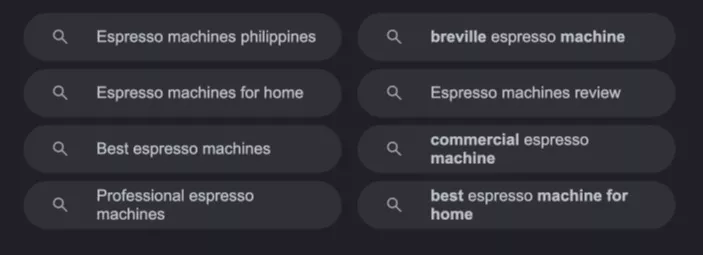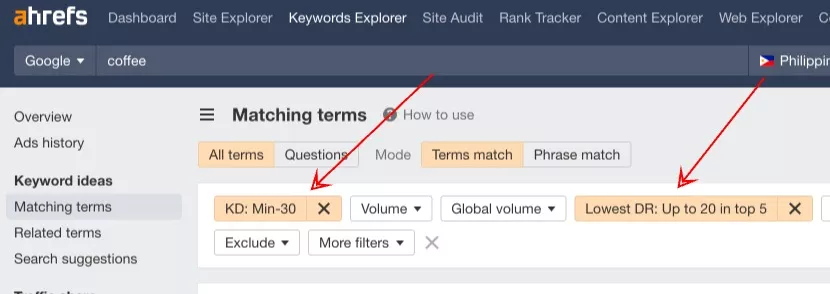by Venchito Tampon Jr | Last Updated on August 11, 2023
Keyword research is an integral part of SEO, as it dictates what type of content you’ll create and publish to rank in search engine results pages (SERPs).
Finding niche keywords is easy, but choosing the right ones to target for your website requires critical thinking.
In this post, we’ll cover how to find and choose the right niche keywords for SEO.
What are niche keywords?
Niche keywords are specific words that interest a small part of a market. Users search these terms to find solutions to problems or more information about the topic they’re looking for.
How to Find Niche Keywords for SEO?
The most popular approach to finding niche keywords is inputting seed terms into keyword explorer tools like Ahrefs.
1. Using Tools and Platforms
Let’s start with the basic ones. With these keyword research tools, you can instantly generate hundreds of niche keywords.
Ahrefs
By searching for head terms on Ahrefs’ Keyword Explorer, you’ll get a list of all matched words or phrases related to your inputted terms.
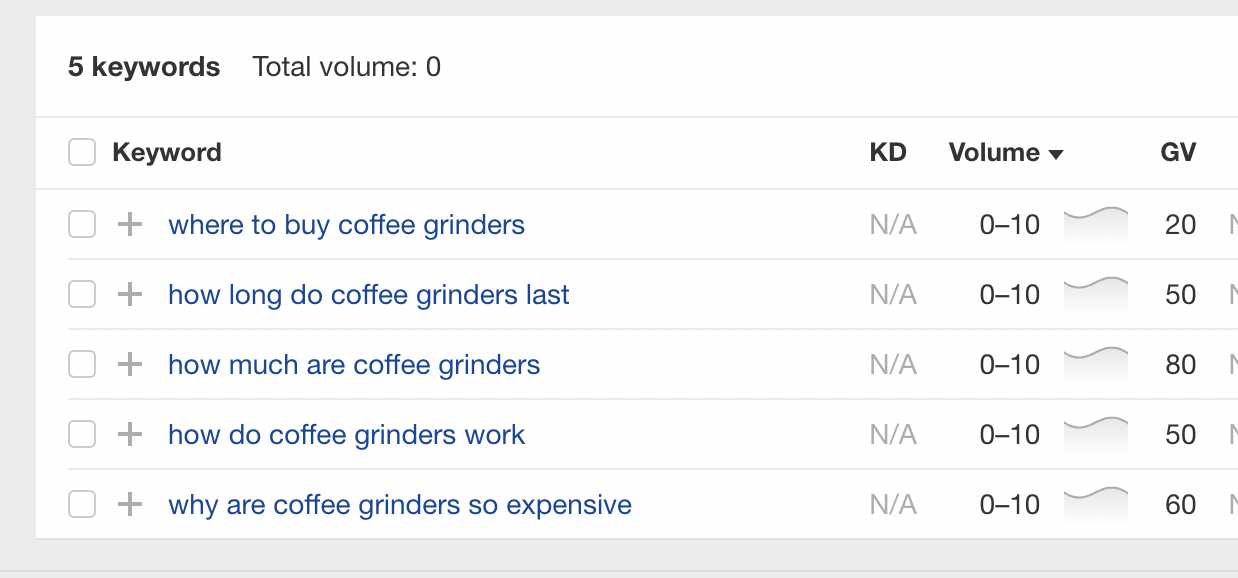
For instance, if you’re selling “coffee grinders’, you input the phrase “coffee grinder”, and you’ll see a bunch of niche keywords related to it. You can export and qualify a list based on specific criteria – which I’ll discuss later in this post.
SEMRush
SEMRush has more dynamic features and a massive dataset for keywords that can help you collect more relevant terms suited for your niche.
With its new topic cluster feature, you can easily create a topic cluster that can fit into the minds.
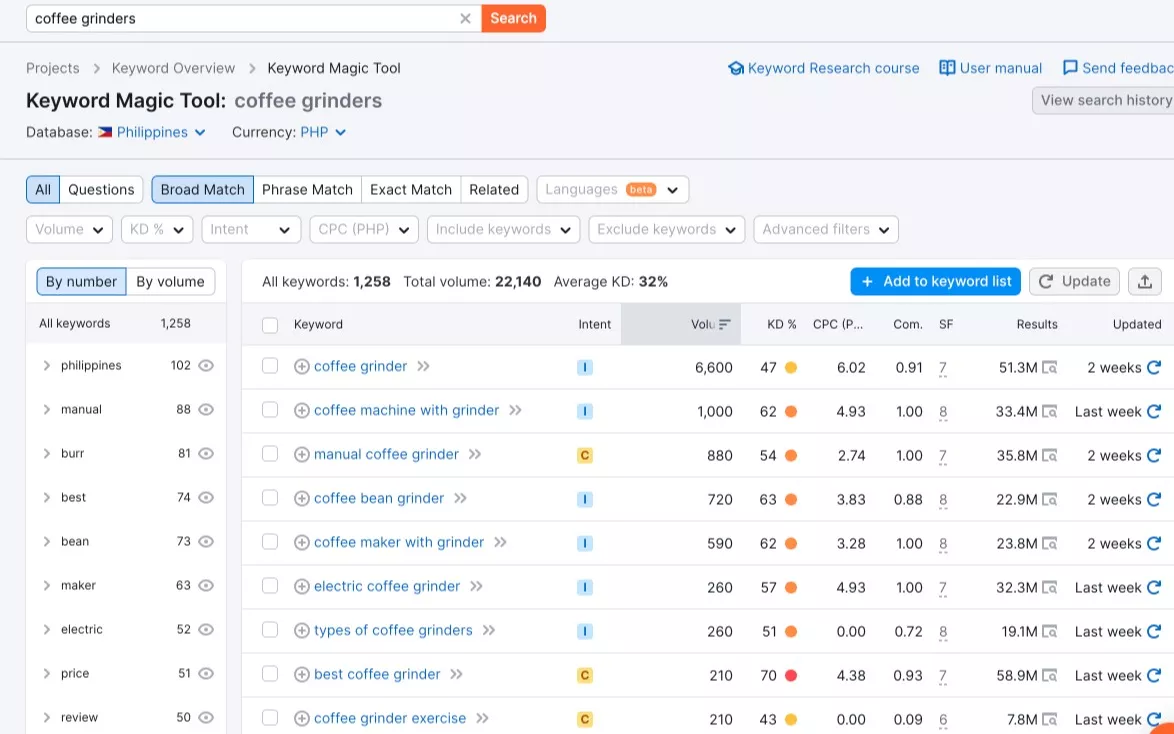
Further Resource:
Answer the Public
AnswerthePublic.com is a free browser-based topic generator tool that allows users to generate niche content ideas based on frequent search questions/queries by web searchers.
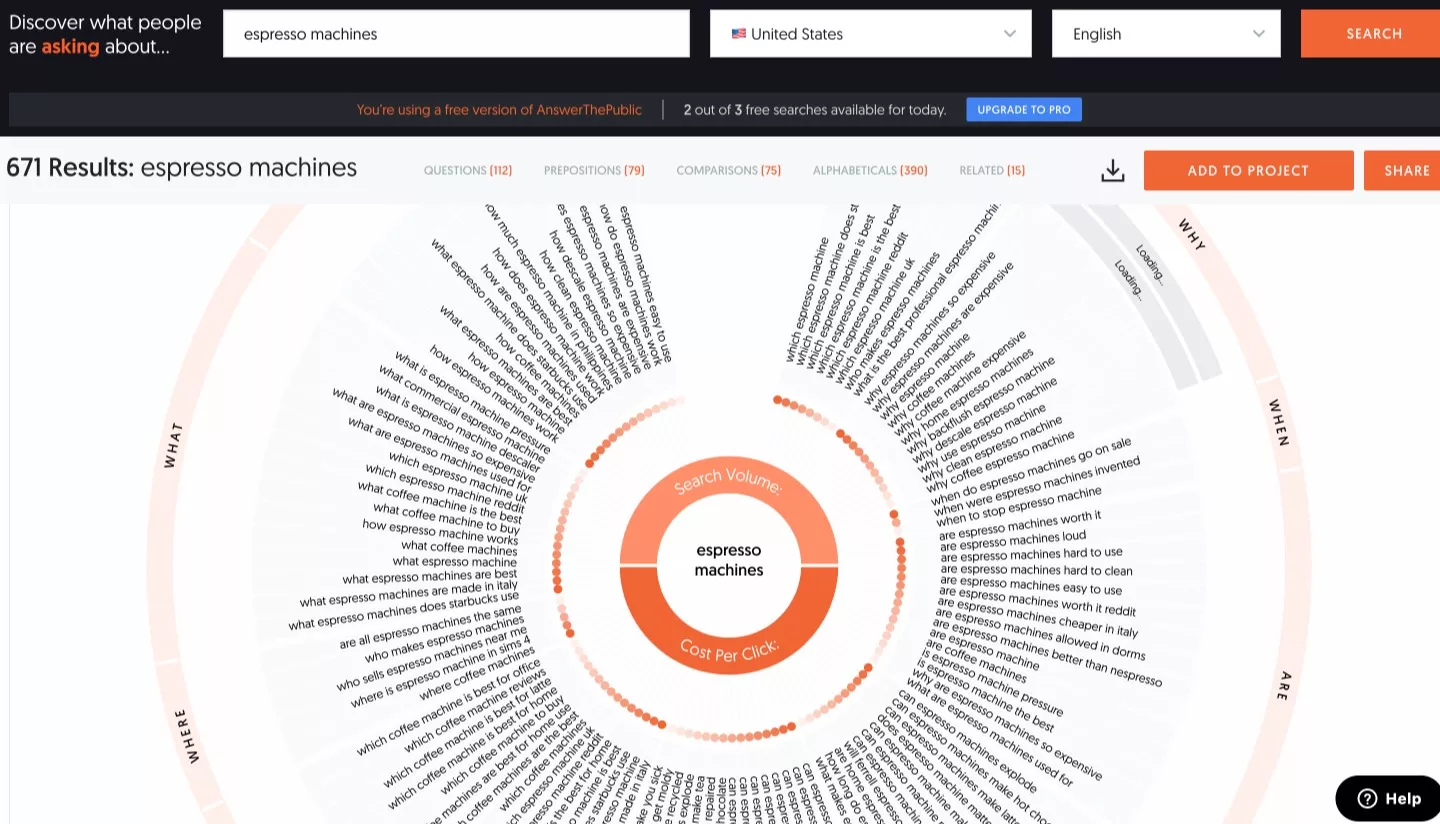
The tool displays data visualizations of interconnected topics or questions from primary keywords and topics you’ve inputted on their site.
Pro tip: Export the list of questions and paste them into Ahrefs’ Keyword Explorer to see which ones have substantial search volume you can target for your niche content.
Quora
Quora is the web’s most popular community-based Q&A platform today.
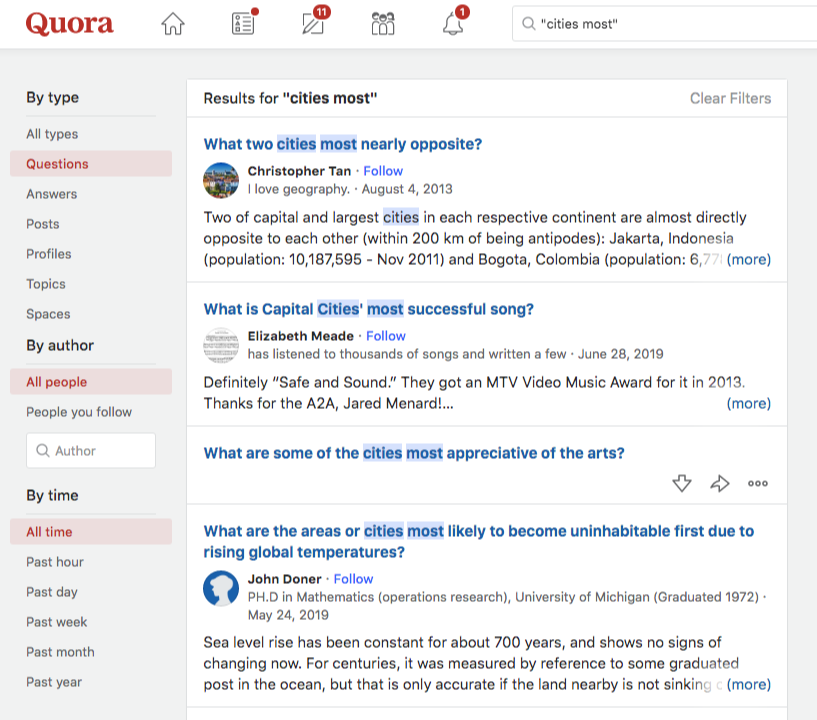
You can generate niche content ideas by skimming through all the questions related to your website/industry. Do a quick search on Quora. Check those with high activity engagement, as these questions are more likely to be searched.
Pro tip: Plug in Quora[com] to Ahrefs and input your topic to see what keywords Quora currently ranks for. It’s a pretty good sign that your content has the potential to rank for these keywords if Quora is part of the top 5/10 spots.
Google Autocomplete
Google has been so effective in suggesting search queries that are based on users’ historical search activity/habit. By doing a Google search for your target topic and not hitting the enter button yet, you’ll find Google Suggest or Autocomplete feature to give you some recommended searches.
I’ve been testing and targeting these Google auto-suggested keywords for one of my niche test sites. And though they have low search volume, most don’t have search volume data for now. These niche keywords are valuable enough to optimize your new content, given they’re near commercial intent.
2. Using Reverse Keyword Research
Inputting seed keywords into SEO tools like Ahrefs to scrape a list of all matching and topically-relate keywords and select the ones with high search volume is doing keyword research the conventional way.
However, checking the keywords’ search volume isn’t the only way to find niche keywords.
Doing it reversely without checking if a keyword has a significant search volume will be a better approach.
Reverse keyword research is the process of checking your site’s ability to rank based on the experience and expertise of the author before assessing if the topic has a significant search volume (or is pretty decent to rank with your website).
By first checking your authors’ expertise, you can gain much more advantage in assessing the content’s E-E-A-T (Experience, Expertise, Authoritativeness, and Trustworthiness).
For instance, I’m starting to frequently publish new industry guides on this link building blog with new SEO experiments I’ve been learning from my niche sites that I find helpful to you (as my reader).
From there, I would ask keyword research tools like Ahrefs’ Keyword Explorer to give me matching or related keywords based on the inputted topic.
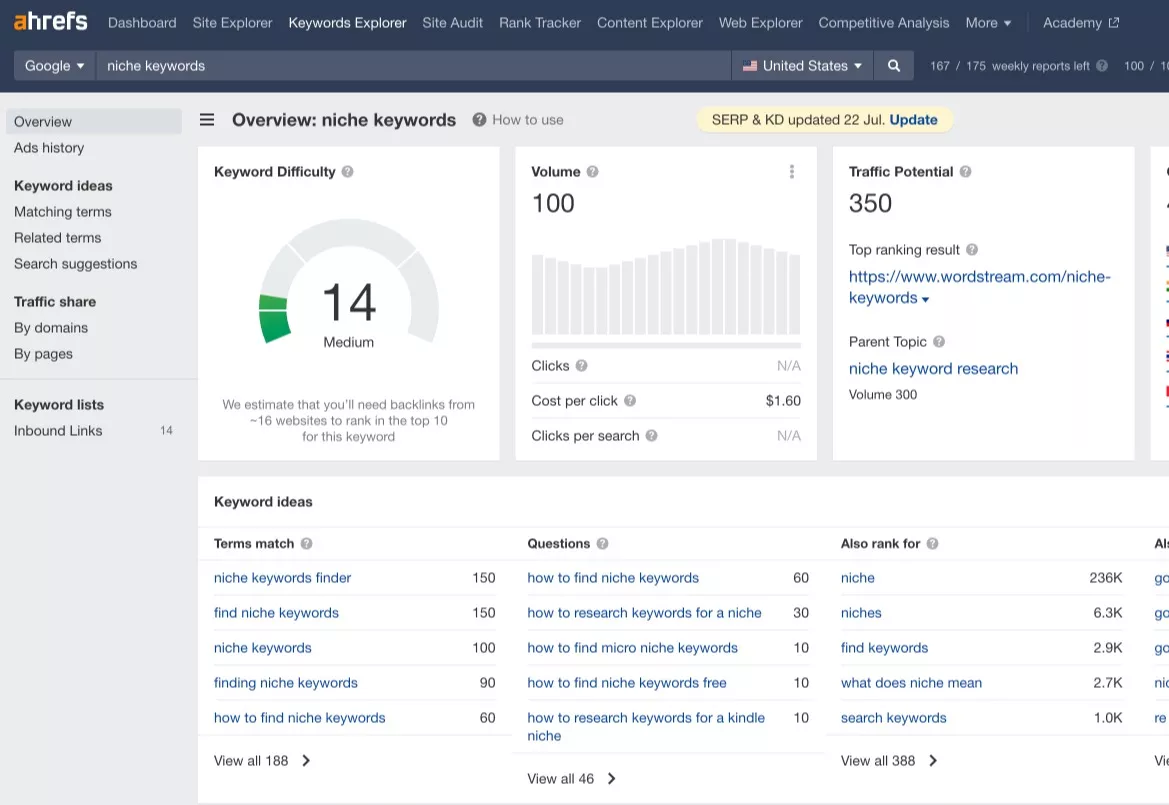
Instead of assessing if I have enough experience or expertise to write about the subject, given it has a good search volume I don’t want to miss with my new content, I’d have much better confidence in crafting the content in a way that’s rankable given its quality and comprehensiveness.
More reasons why reverse keyword research is robust in ranking niche keywords for SEO:
- Expertise and experience are brought to life in a content asset (E-E-A-T signals matter). You are more likely to cover many topics your competitors haven’t written – an excellent way to differentiate yourself from them uniquely.
- You establish topical authority when you’ve published content assets from topics you know are essential in your industry, even if these topics have zero to low search volume.
The best way to start reverse keyword research is to list all topics you know about your industry. Then rate them based on how well you know the topic (“1” being the lowest, “10” being the highest).
Rank these keywords from the topics you’re very knowledgeable about and publish content about them.
Then go to Ahrefs to see if they have an existing search volume. You can restructure words to find if there are existing data the tool has for the keyword.
3. Emerging Topics
Emerging topics are industry trending terms with increasing search demand.
And having content to write about gives you an initial advantage to being one of the first few indexed pages solely written about the topic.
It’s also an excellent way to build topical authority, given you demonstrate proficiency across all facets of your niche, including the ones that haven’t seen much light.
Increasing the topical authority of your website as the go-to source of information for niche topics increase the keyword visibility of your blog content for informational search queries.
There are many impressive tools to generate emerging topics in your space quickly. Exploding Topics by Brian Dean gives you regular email updates for any trending topics. This allows you to jump in on the topic and write about it, even before it hits its peak rate.
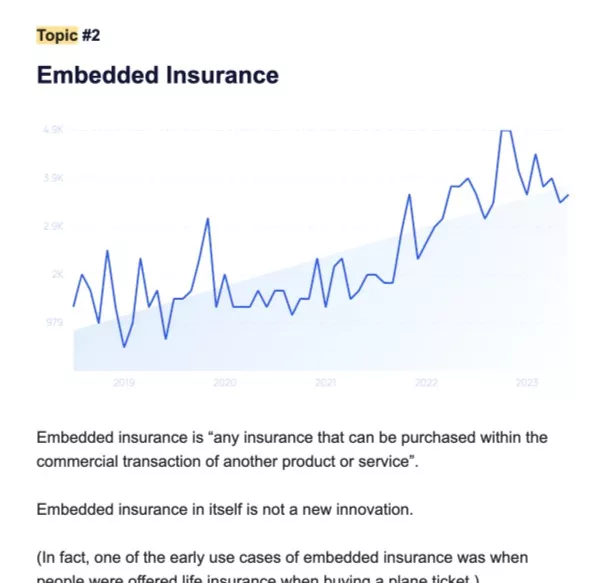
One of the latest videos of Authority Hacker is sharing a strategy on how they’ve tapped into the emerging topics on Tiktok to create content for one of their niche sites in the home DIY space.
As it turned out, Ahrefs have captured more search volume (for its data) and is now revealing a good search volume for the topic.
This is a great way to take advantage of new emerging topics with high potential to get search demand.
4. New Keyword Opportunities
One of the best places to start finding niche keywords is from existing ranking pages.
Your content ranks not only for its main keyword but for other industry-related terms that are potential keyword opportunities.
Google may see your page as relevant enough to rank for page 2, as it gets some impressions and few clicks, but with a thorough investigation, you’ll find it is best to create new content to target those topics.
How to find these new keyword opportunities?
Using Google Search Console
Go to Google Search Console.
Performance – Search Results – Queries/Pages.
Find pages with many impressions but getting fewer clicks. This means you may be sitting somewhere on page 1 or 2 (even lower) but aren’t relevant enough to rank highly on search engine results pages).
You can start with your best-ranking page. For this example, my how-to guide on starting a coffee shop has ranked well for dozens of keywords. So I start with this page.
Go to Queries – Rows per page (100 or 250).
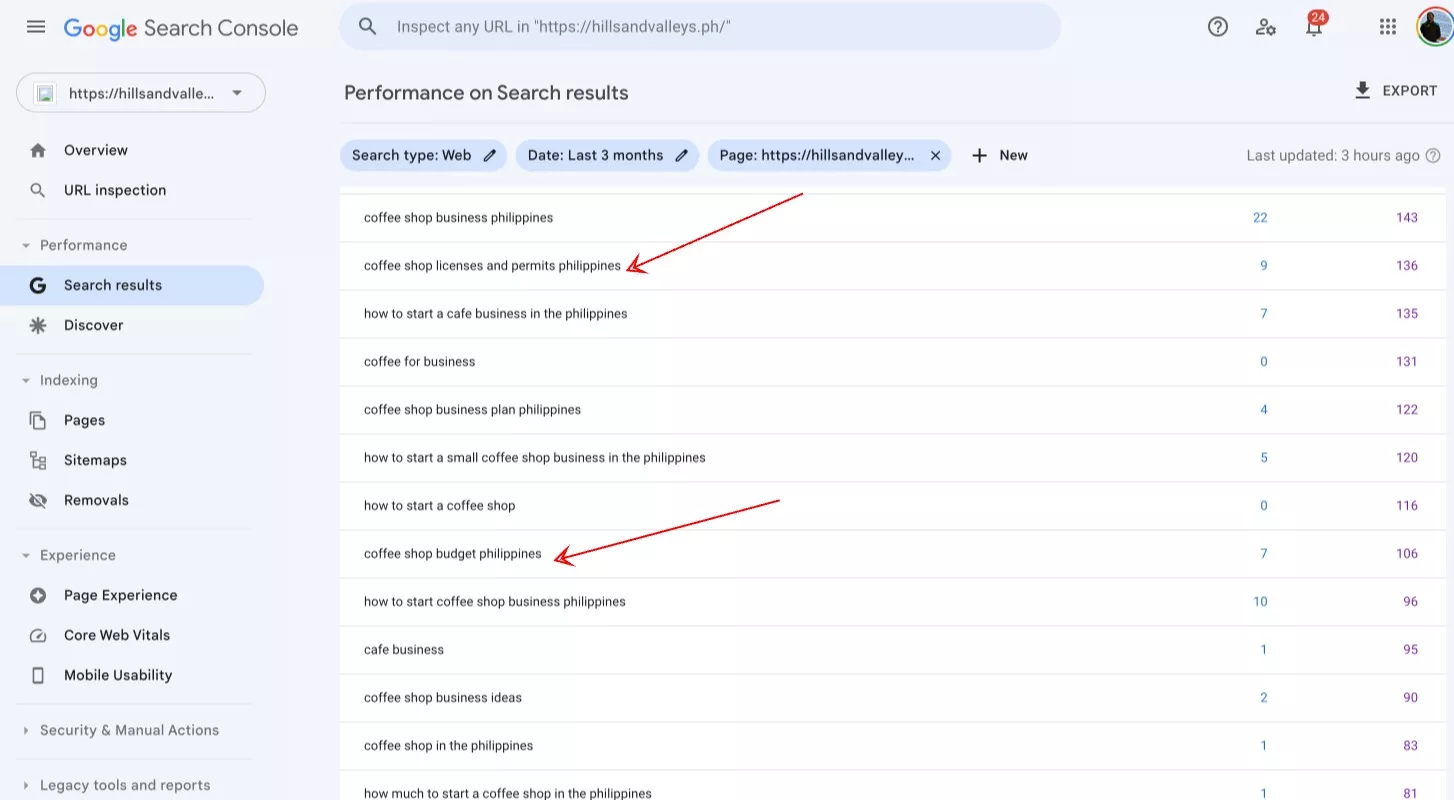
Here, I’ll spot niche topics that:
- I haven’t covered much in my content (I don’t have a section for it or a solid discussion about the topic).
- Broader and would require new content to provide more comprehensive information.
- Useful to add to my topic cluster.
Using Ahrefs’ Organic Keywords
Plug in one of your top pages on Site Explorer (if you don’t think of any, go to Top Pages, and there you’ll find your best-ranking pages).
Organic Search – Organic Keywords – Filter (11 to 100).
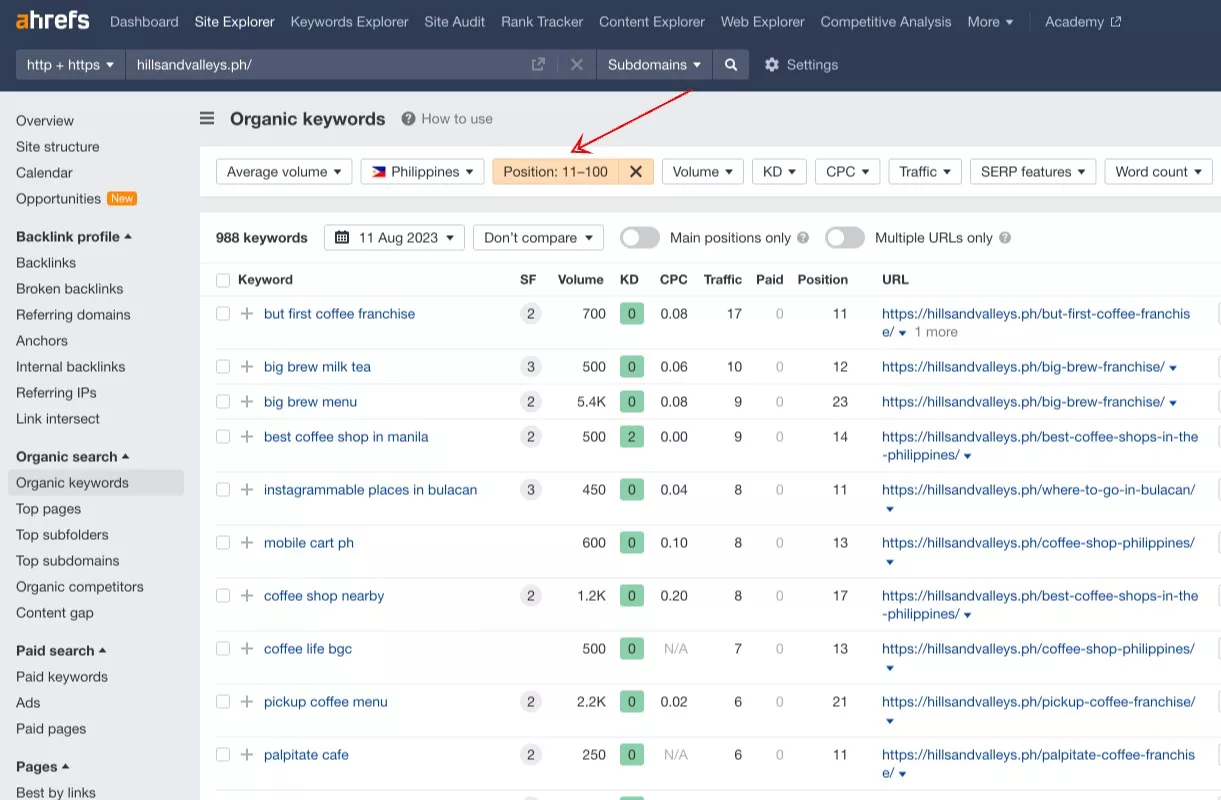
If you can’t move up the rankings from position 11 to page 1, there might be a search intent mismatch, so you must create new content about the topic (more on this below).
How to Choose A Keyword To Write About
After you’ve collected a list of niche keywords, there are things to consider to assess if a niche keyword is worth the time to create content (and optimize pages for).
This isn’t an exhaustive list, but my fundamental metrics/criteria when choosing a keyword to write about.
1. Search Volume
You need to know that people are searching for it.
- This means that it must fit at least one or two of these criteria:
- 100 or more monthly searches according to a keyword research tool (e.g., Ahrefs).
- Visible in Google autocomplete
- Appears in People Also Ask (you can use SearchResponse.io for free).
- Has a good number of impressions, according to Google Search Console (it only works if you have a similar article).
- Your personal experience or expertise tells you people are searching for it.
The last one is quite underrated. If you have enough expertise, you know emerging topics and specific subjects that people are currently or have been searching for.
One keyword does not equal one page. You can rank one article for 100s of keywords.
2. Competition
See if you can compete with the top-ranking pages for the keyword.
Here, people usually start with metrics like keyword difficulty (KD). At most, filter keywords with DR 30 or less, assuming you’ve got a new or lower authority domain to compete with.
Keyword difficulty doesn’t tell the entire story. You can choose a keyword with KD25, but ranking on the first page is challenging.
Instead, you manually type the keywords on Google and check the search engine results pages (SERPs).
- Here, I look for at least one or two of these in the top 5 or 10 spots:
- Websites with a DR lower than mine
- Forums or community-based sites (e.g., Quora
- Articles not updated in the past 3 years
- Low-quality AI scraped or spun sites
- Pages with thin content or very short articles (e.g., 500 words)
I recommend going after keywords if a ranking page with DR is lower than your site.
In theory, the lower the DR on top-ranking pages, the easier it is for you to compete with higher DR.
If every website on page one has a DR 80 or higher, that would be a red flag unless you’ve got DR 70 or higher to break through.
You can use Ahrefs to filter keywords with lower DR sites quickly.
Ahrefs Keyword Explorer – Filter – DR 30
3. Relevance
If a keyword is irrelevant to your site, don’t bother with it.
If you’re blogging about espresso machines and see a keyword about milk teas, don’t try to target it unless you want to expand on covering those topics.
Google ranks websites, not only pages.
The more comprehensive you blog about keywords within topic clusters, the more quickly you can gain topical authority, which makes it easy to rank for more niche keywords.
If you have set up a topical map, you can check it and see if a keyword you saw is included in it. I’ll discuss more about topical maps in my next blog posts.
But relevance is of top priority. Ignore it if it doesn’t have high relevance to your niche site.
4. Search Intent
You could have written 3,000 words on a topic yet couldn’t rank for the keyword because of an intent mismatch.
Search intent mismatches happen when the content you’re trying to rank doesn’t satisfy the search intent of the keyword.
There are four main types of search intent:
- Informational (e.g., “how long do espresso machines last?”)
- Navigational (e.g. “Breville login”)
- Transactional (e.g., “buy espresso machines Philippines”)
- Commercial (e.g., “best commercial espresso machines”)
Most niche site owners should be targeting informational and commercial investigations. These informational keywords are usually monetized with ads, although you can suggest affiliate keywords within the article (which serves as a solution to the problem).
Commercial investigational keywords work best with affiliates as you can insert individual product affiliates within the content.
For eCommerce SEO, you must target all four search intent types.
Categorize all your keywords based on their search intent. Then manually check on Google to see what types of pages are ranking for the keyword.
Next, to search intent, you’ve got to see the exact type of content Google favors on SERPs.
For instance, in one of my target keywords, “coffee business permits”, I could rank well on position #5 or #6 but probably won’t make it to top #1 given an intent mismatch.
Either I create new content that solely talks lists down business permits and licenses for coffee shops or have a new section on my coffee business guide.
This is where most of your time should be invested in. Investigate the entire SERPS, see what types of pages get ranked, what kind of information and format they use, and what specific entities you should include in your content.
5. User Satisfaction
Think about how long it will take you to answer a query.
If you’re targeting a “what is” keyword that can be quickly answered in one paragraph, don’t write an entire article about it. You can include it as part of a long-form guide about the parent topic.
One of the best keywords to target is when it is not answerable by short definitions but will require an entire article to explain the topic.
For instance, a keyword like “What is a good espresso machine for business?” would require an experienced and expert writer to showcase the best products with features to help aspiring coffee shop owners choose the best machines.
Bounce rate has nothing to do with the long a visitor stays on your website or how long they are engaged with your content before clicking back to the search results.
They could have been fully satisfied with your content – and it is the last click for the keyword. Your content has higher engagement signals than others, as it fully satisfies users’ search intent.
6. Audience Location
If you have an affiliate niche site, consider targeting a US audience, particularly if you monetize with ads. For affiliates, it can be best to target your own country to get products shipped for you for testing more quickly.
If you have an eCom website or a B2B site, you know your target audience, and best to include it when filtering your keywords on keyword research tools like Ahrefs.
Investigate Before Writing
The first half of the battle is won if you investigate a keyword before deciding whether to write about a keyword o not.
Being sure you can rank for a keyword with your content (quickly) helps you get some quick SEO wins early on for your website.
Niche Keywords for SEO FAQs
What is a good keyword niche score?
A good keyword niche score has many variables that come into play. There is no absolute niche score to see if a keyword is a good target for your content. Instead of relying on one niche score, check keyword difficulty, asses the top ranking pages, see if it’s part of your topic cluster, and look at the search volume – all these, you assess if a keyword is worth targeting.
How do I find searchable keywords?
To find searchable keywords, you can apply any of the following tips:
- Input seed keywords into Ahrefs or SEMRush and collect a list of matching and relevant keywords.
- See Google Autocomplete and related keywords below search engine results pages (SERPs). Tip: Don’t hit enter button.
- Find emerging keywords using Exploding Topics. See if there are any relevant topics in your space.
Why are niche keywords important?
Niche keywords are important because these are topics to target with your content. When creating new content for a blog, it is best to have a target keyword to optimize for. Include the niche keyword in the URL slug, meta title, meta description, and H1 and H2 tags, and sprinkle it across your content. I don’t care about keyword density.
How do I choose good keywords?
To choose suitable keywords, consider the following:
- Search volume
- Keyword difficulty (and manually checking lower authority domains for your target keyword)
- Relevance
- Audience location
- Search intent
- User satisfaction (types and formats of ranking pages)
It’s subjective in every industry and context, so consider choosing good keywords manually.
What keywords are trending?
The trending keywords are different for every industry and business. An excellent tool to help you out is Exploding Topics by Brian Dean. They have a free newsletter where you can see emerging topics every week.
The Author
Venchito Tampon Jr
Venchito Tampon is a Filipino Motivational Speaker, Corporate Trainer, and a Leadership Speaker in the Philippines. He is the CEO and Co-Founder of SharpRocket, a link building agency. With a decade of experience, Venchito has a proven track record of leading hundreds of successful SEO (link builidng) campaigns across competitive industries like finance, B2B, legal, and SaaS. His expert advice as a link building expert has been featured in renowned publications such as Semrush, Ahrefs, Huffington Post and Forbes. He is also an international SEO spoken and has delivered talks in SEO Zraz, Asia Pacific Affiliate Summit in Singapore, and Search Marketing Summit in Sydney, Australia. Check out his other businesses, Hills & Valleys Cafe, Blend N Sips and Saas Pursuit.
How our LINK BUILDING AGENCY builds 250 links/mo consistently using Predictable Link Building Methodology™…
- Using a SIMPLE and PROVEN system
- Using a SCALABLE strategy
- No private blog networks
- No creepy outreach emails
